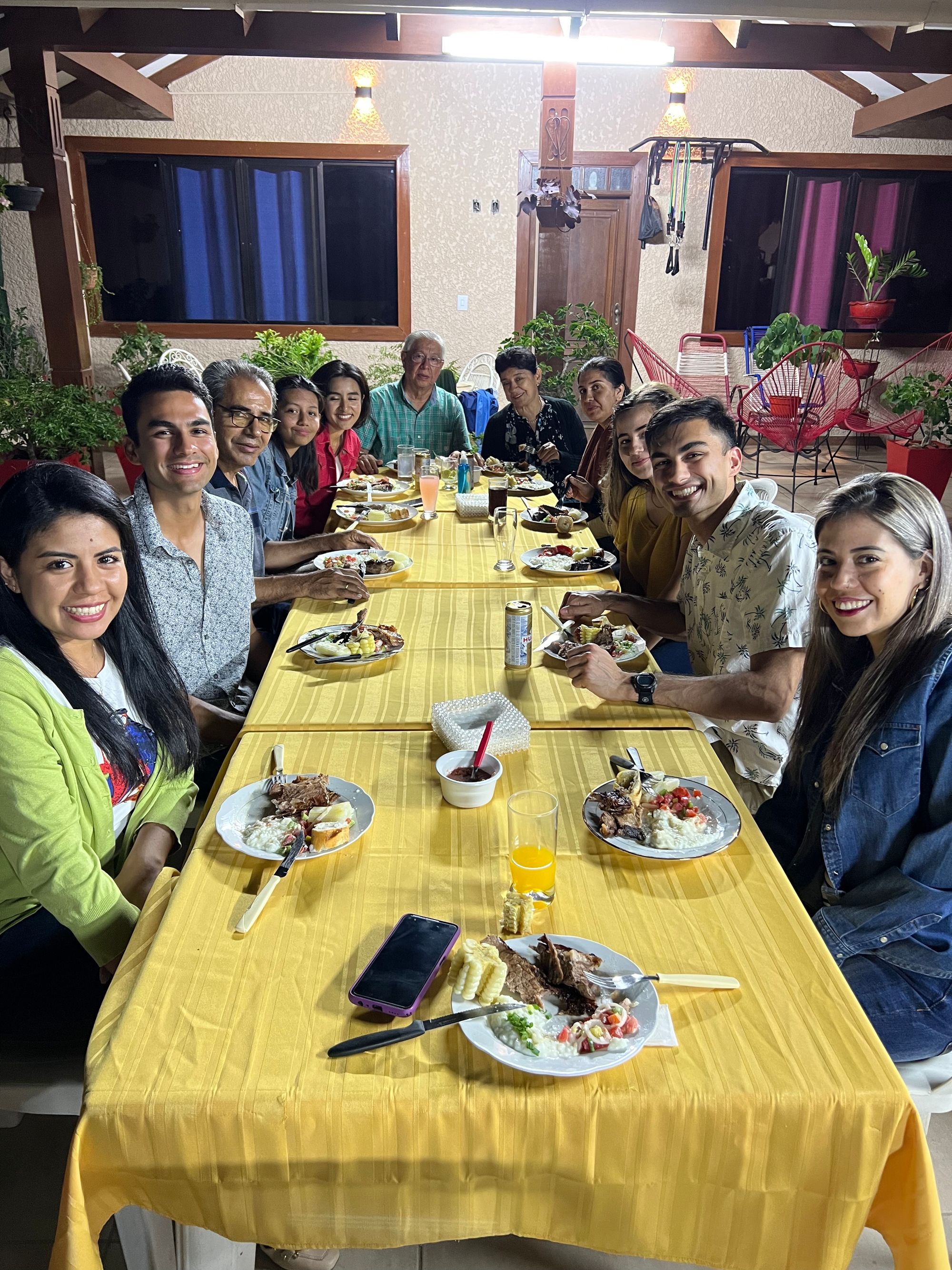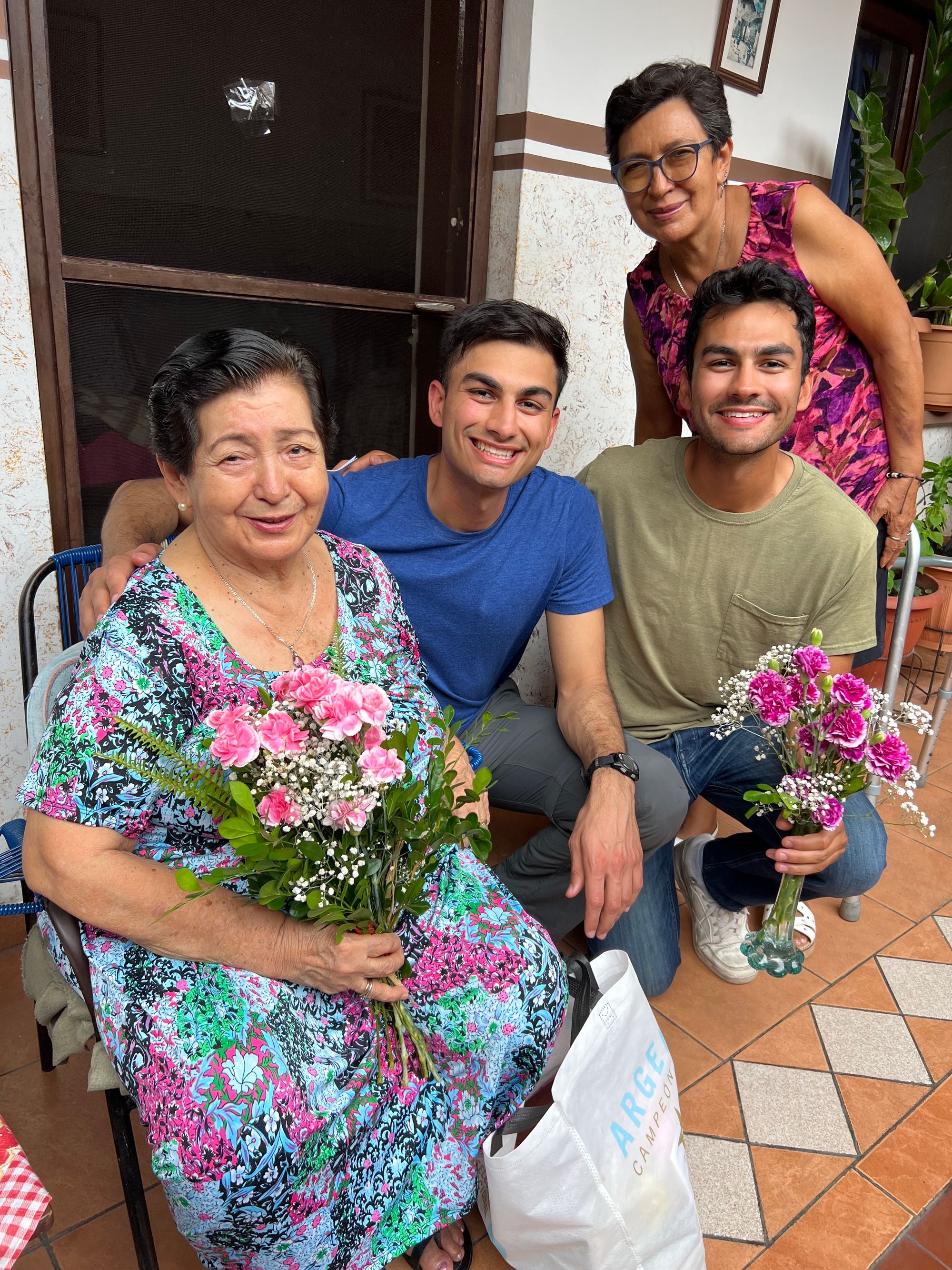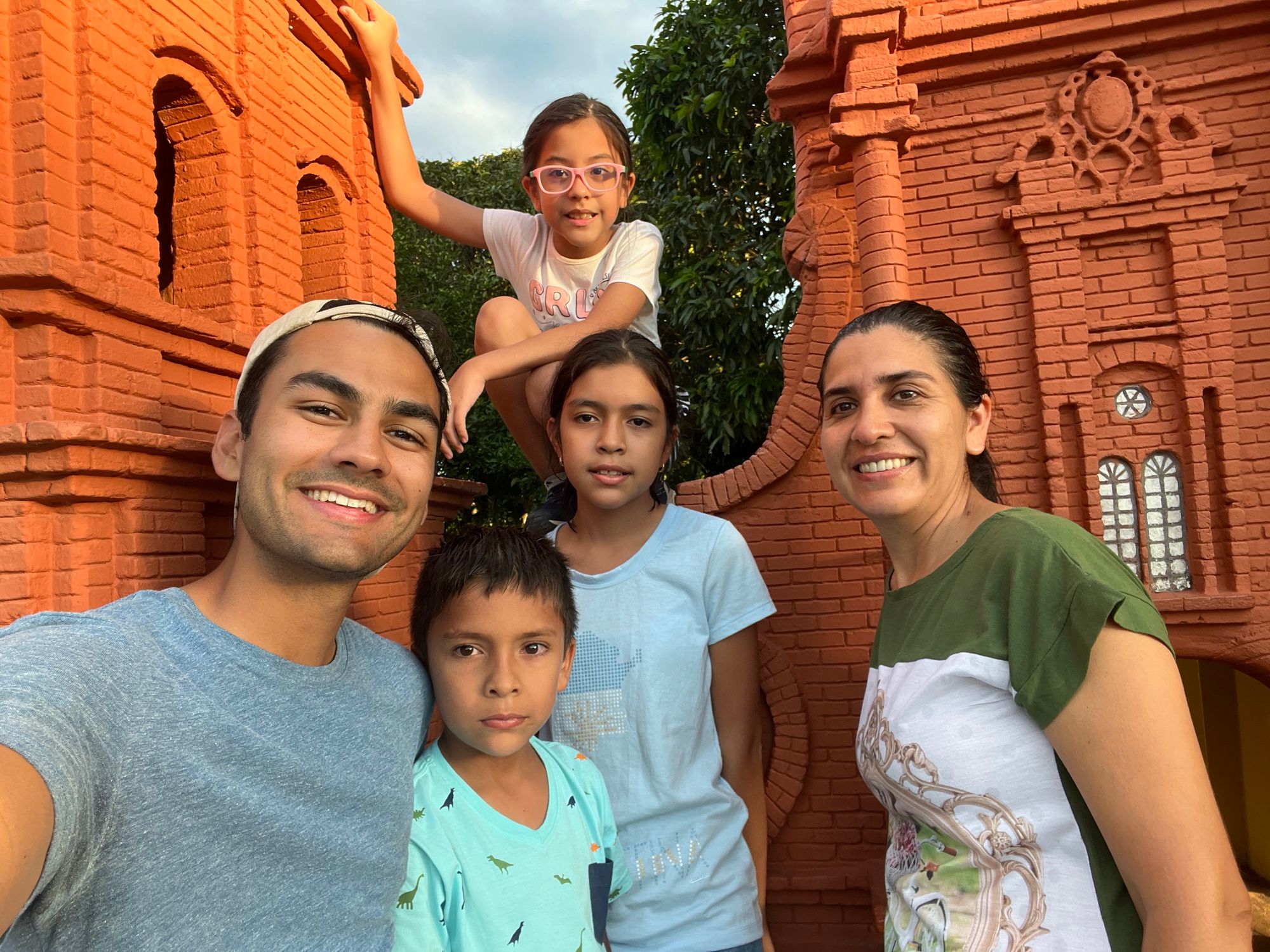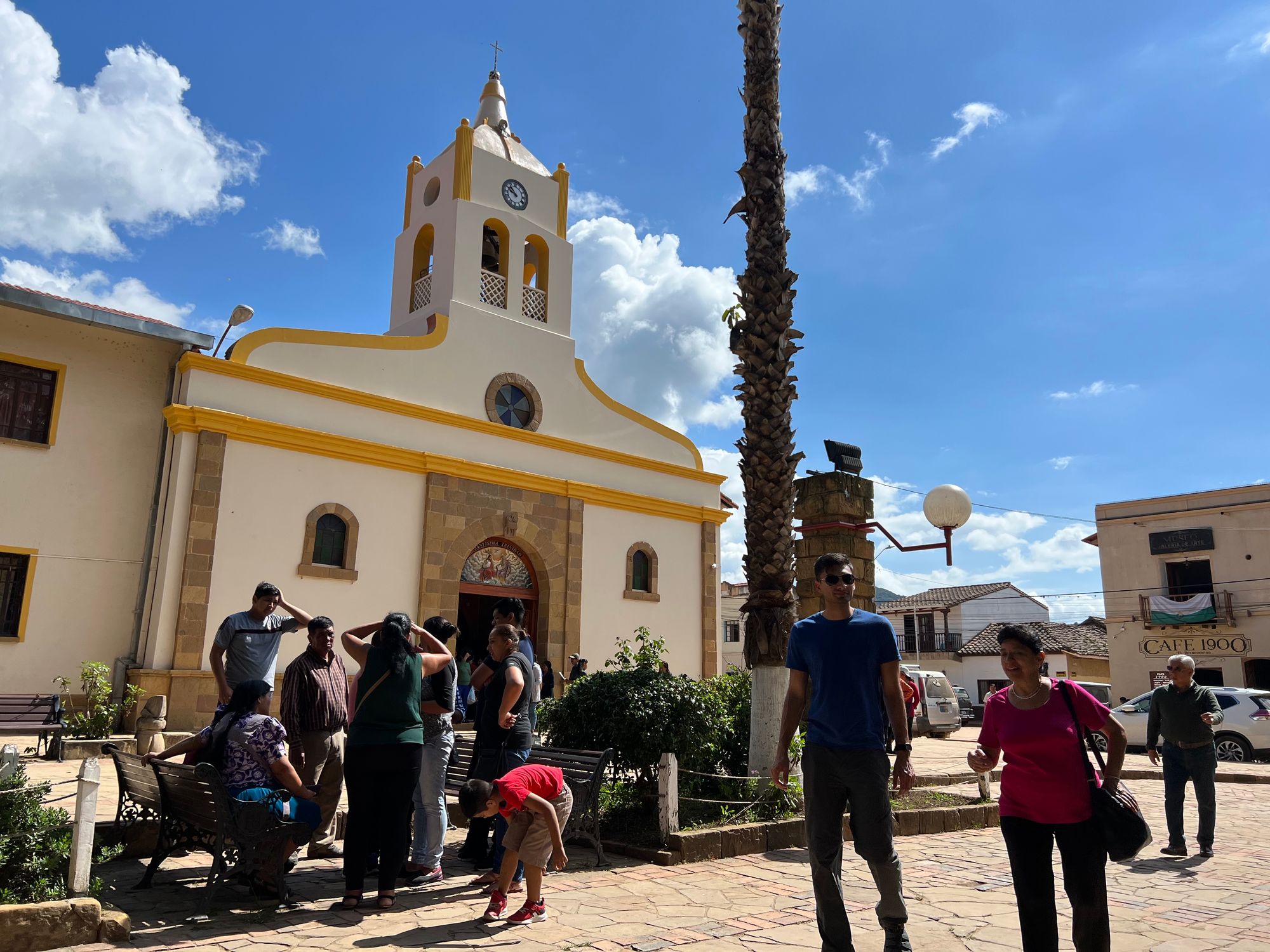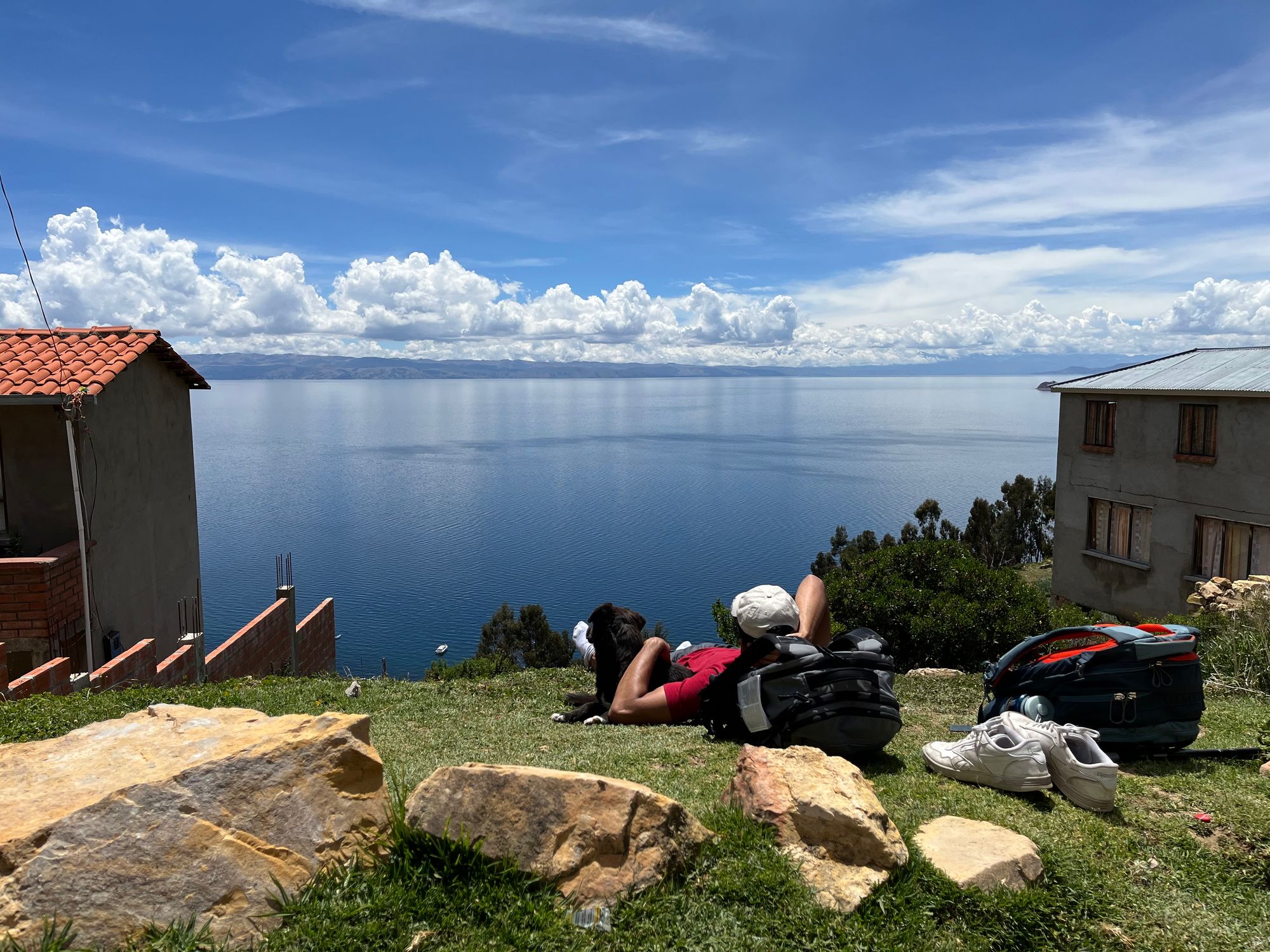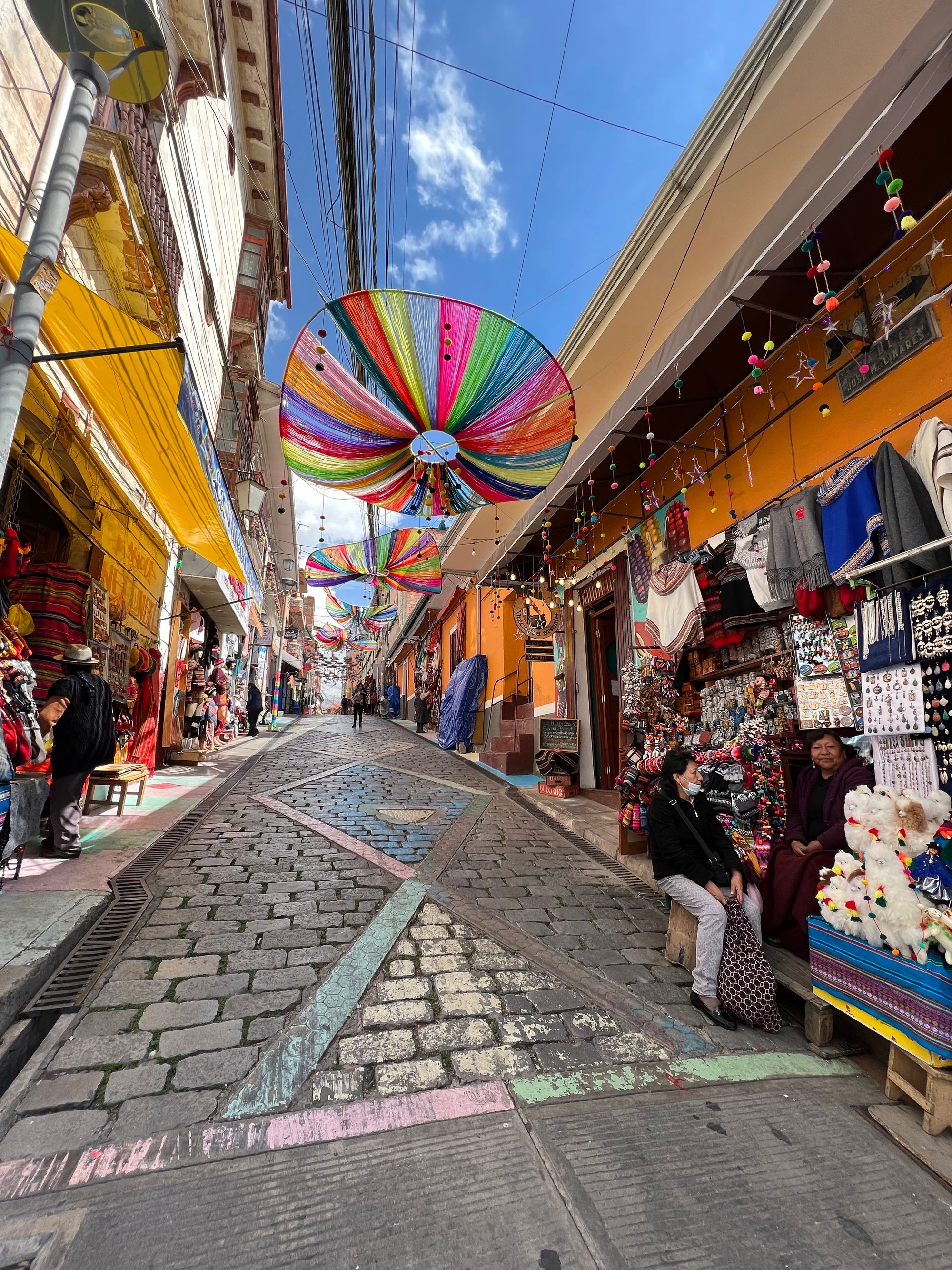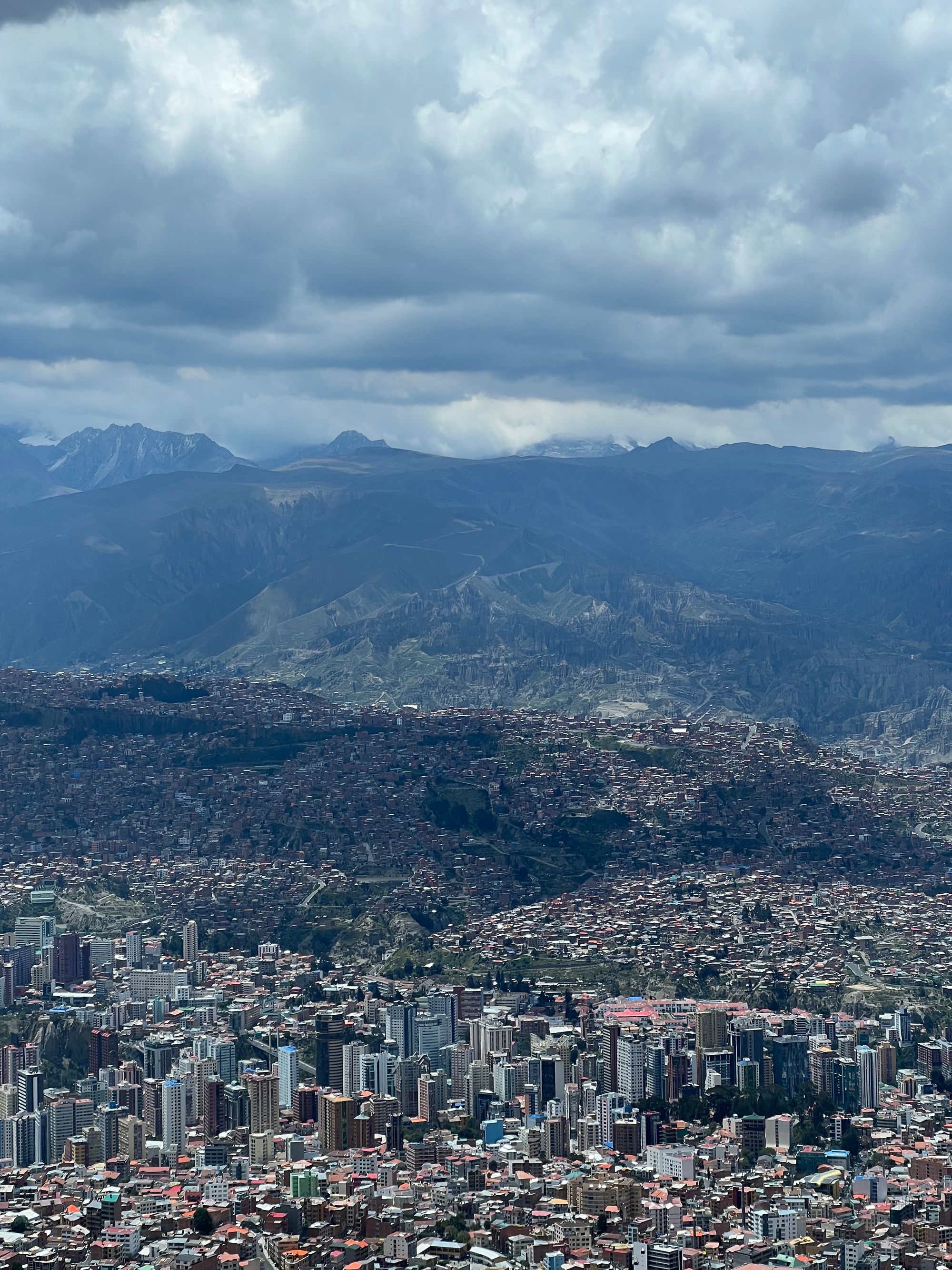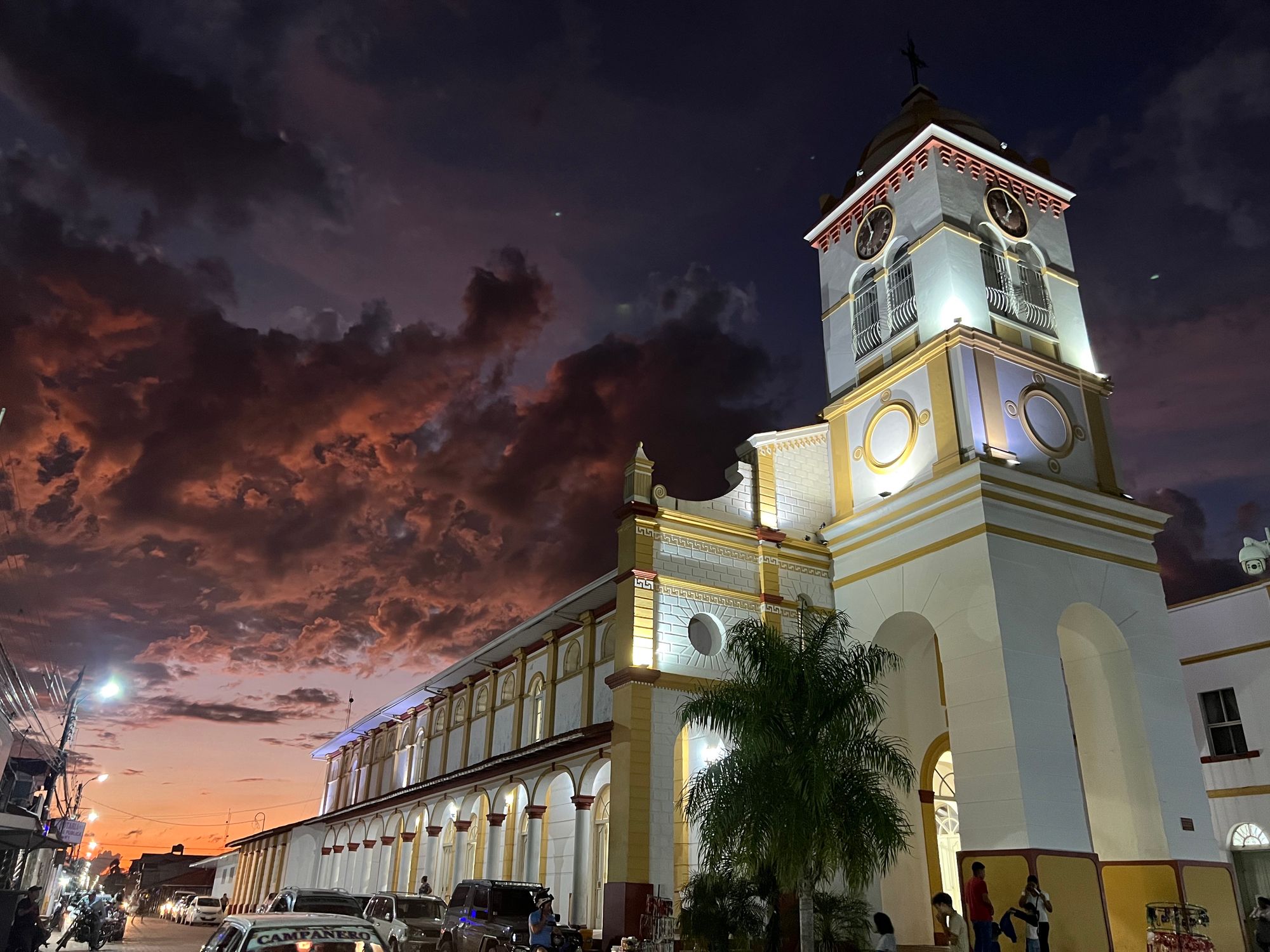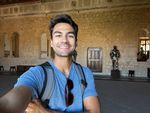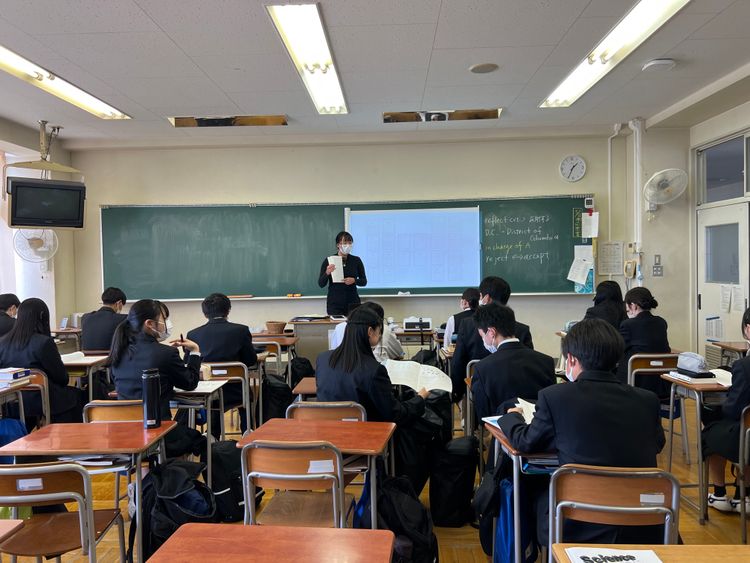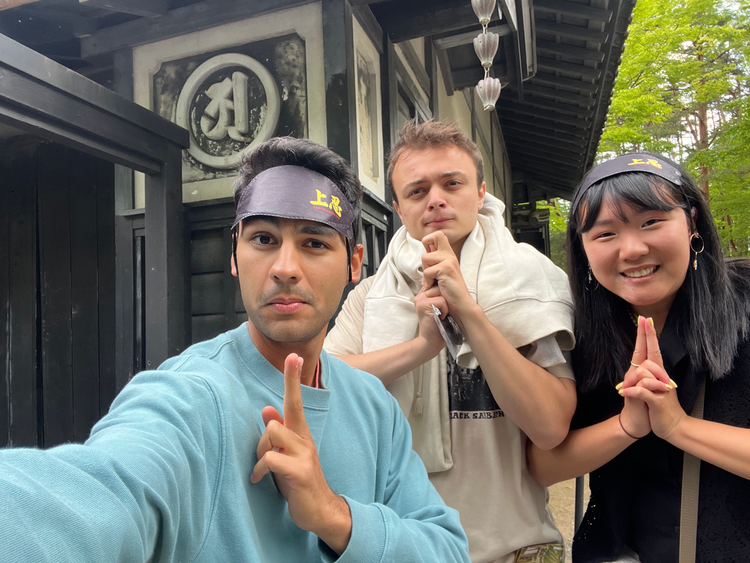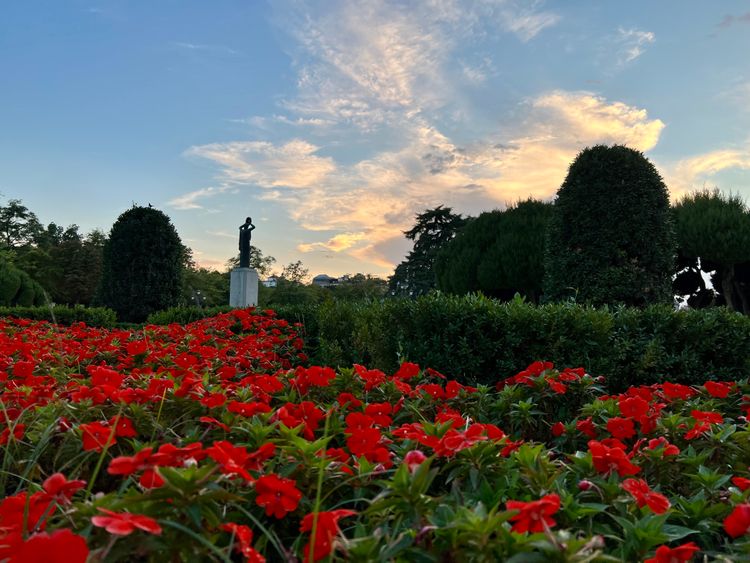Bolivia 2023 | Wholesome Memories and the Concept of Family
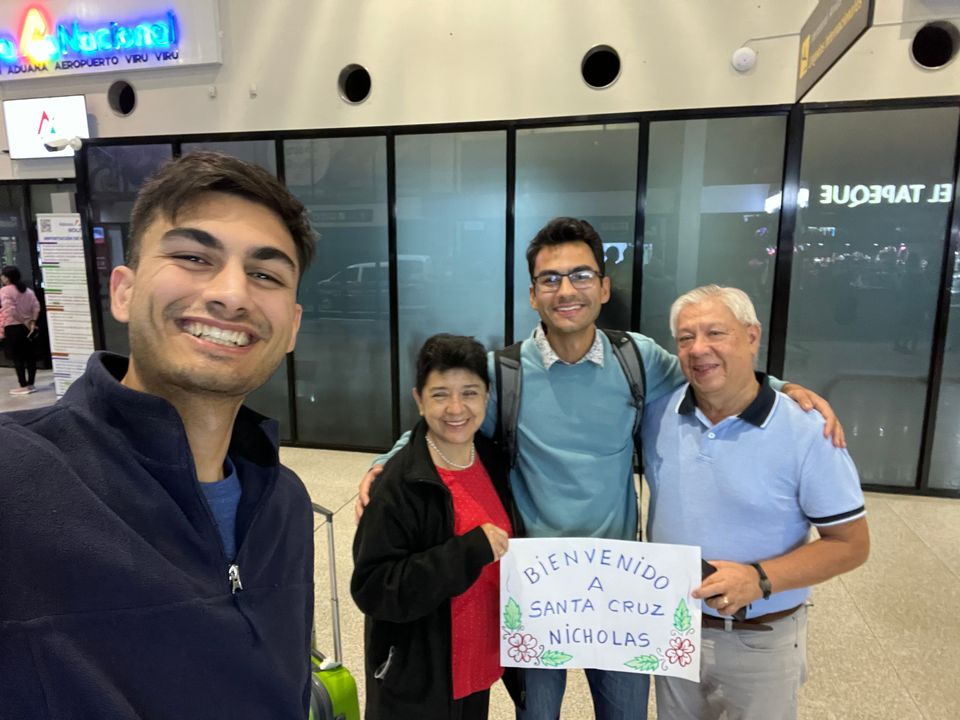
WhatsApp ready, projector turned on, and a couple brave student volunteers in place. I pressed the call button. There we were, with 4,000 miles separating us, talking to the daughter of the sister of the wife of my second cousin once removed. Got that?
After being the Spanish 1 substitute teacher for several weeks, I was having my students attempt a conversation with a native Spanish speaker as one of our last class activities. Thanks to Luciana and Dany, my two distant relatives in Bolivia, we did just that. The day went on, and it was full of wholesome interactions–enjoyable, awkward, funny, and memorable. I knew it would be a challenge for the students, but it was worth it.
During this day, I was reminded again of how thankful I was for these valuable new friends and family members. Since we first met in March, I have reflected many times on how nice it is to know them. It’s made me think about the concept of family at large. How do we define ‘family?’ Who can we consider ‘family?’ Why does ‘family’ feel so special? Answers to these questions are not concrete… but I encourage you to think about them as I tell this happy story of discovery. So, how did I get connected to Bolivia in the first place?
Thanksgiving. It starts there. For me, Thanksgiving has always been one of the most meaningful holidays. Growing up, this was one of the only times of the year that I got to see different extended family members. Since I’ve been alive, my family’s home has been the location of our large family reunion-style Thanksgiving party. Over the years, we’ve shared many golden memories. Aunt Laura’s sweet potato casserole. Hysterical laughter from a round of Telestrations. Scared reactions from my cousin Damion’s and my fake snakes. Cousin Ben throwing six touchdown passes. His dad Rick hurting his hamstring in the same game. Yes, not all memories are super positive. Uncle Kenny slipping on turkey grease, glasses smashed. Still, they're core memories nonetheless. You may have guessed–I’m definitely one of the no-Christmas-before-Thanksgiving kind of people.
Included in the extended family I have bonded with over the years are my three second cousins once removed. I share great-great-grandparents with these brothers’ great-grandparents. One of these three cousins married a woman from Bolivia in 2016. Here we are! Over the last set of years, both at Thanksgiving and various other times of the year, my brother, Nathan, and I have thoroughly enjoyed becoming friends with our new aunt and learning more about Bolivia. Our aunt’s mother, Cecilia, has visited several times from Bolivia, and likewise, Nathan and I have loved meeting her. From time to time, the topic has been brought up–why don’t we visit Bolivia sometime!
This year was that time. We had an opportunity–Nathan’s break between MS3 rotations and me in my gap year. We told my aunt and cousin, and they were excited, too. They helped us in a big way through planning and coordination with the family in Bolivia. When we arrived in Santa Cruz, Bolivia, at the beginning of March, we were ecstatic.
We had a rough plan of what each day would hold, but it soon became clear that each day would be full of discoveries. Especially through the people we would meet. Every day, we were meeting new, extended family members. Cousins, aunts, uncles, and their respective families.. when I tell you it kept Nathan and me on our toes! Cecilia, (the only person in Bolivia at that time that we had met prior to arriving) has eight siblings. As you can imagine, that expands the family tree in a significant way.
We stayed at Cecilia’s place for most of the trip, and it was a great base, centrally located in Santa Cruz. It was right around the corner to their church, so the different worship music that was played every day almost felt like a part of the house itself. The house stayed pretty active, with Cecilia’s husband, Gabriel, and mother (abuelita) all living there. Also, there were different siblings stopping in and out throughout the day. On one of the first days, a younger brother of Cecilia stopped in with what looked like a full body fine mesh suit. Not knowing who he was or what he did, I looked at what he was wearing and asked if it was for the mosquitos... Everyone found that amusing. He was a dentist! And he worked right next door, so he stopped in often.
Some family we only met once or twice, but others we were with on a regular basis. We spent the most time with Cecilia, Gabriel, her eldest daughter, Dany, and Dany’s daughter, Luciana. Cecilia and Gabriel were the ultimate hosts in many ways, such as by providing advice, taking us on road trips into the natural and historical beauty of Samaipata, or preparing breakfasts of empanadas or cuñapé. The family parties they organized were also amazing. I gained a whole new conception of the family birthday party–complete with the smoke and aroma of fresh churrasco, dance music, late nights becoming early mornings, and bolas de coca. We met Dany and Luciana on day one, and saw them for the majority of our days. Dany took her role as our Santa Cruz guide seriously, educating us about the area and taking us around to the significant places, while answering every question we could think of. Luciana, at eight years old, was a confident girl and curious about the two American strangers who suddenly joined the family.
Fun with the children in the family was one of the best surprises of this trip. Luciana and her older cousin Lucía were both interested in the U.S., and just like the younger boys in the family, they all loved to have fun. Water parks, volleyball, soccer in the house, puppets, music, Just Dance.. It all contributed to the same thing: bonding. Luciana shared her favorite poems and science homework with us (arm anatomy... I don’t think I learned that when I was eight). Lucía was interested in English and excited to continue learning it. By the end of our trip, it felt like all of these small cousins were my actual cousins. It is weird to think about how distant the family relation is.
It was eye-opening, and it made me rethink the concept of family at large. I was fortunate to have an immediate family to grow up in. I was also fortunate to have family that planned regular interactions with extended family–both close extended family in my hometown, and other extended family during Thanksgiving. This family, close and extended, felt established and cohesive. Now, after my experience in Bolivia, I have a new concept for what the construction of family can be. In short, family is more dynamic than I realized. The narrower conception I previously held–it only changes with marriage, birth, and death–was not the full picture. Intentional efforts to develop relationships give families another way to grow. It makes me think of a new type of family tree, where lines aren’t connected just by biology, but also by experiences and friendship. Lateral lines intersecting–a family web.
Of course, this blurs the line between family and friendship. It’s a valid question to ask–are my connections in Bolivia better described as friendships or family? On paper, given the distance of the connection, maybe we’d say friendship. There is no blood relation, and the relation through marriage is a few levels apart. Yet, I think they feel more like family. So I call them family. On paper, after all, there is a connection. And in life, there is one too.
Looking back, I’m thankful for this time in Bolivia, and on an unrelated note–a little bit surprised about the experience in relation to language. My Spanish is very much a work in progress. Nearly two weeks of only Spanish was very challenging and good for my development. My brother and his superior Spanish helped me, but still, I feel blessed to have been able to form these connections in the midst of the language barrier. There were certainly conversations that are forever lost on me, like when Cecilia’s younger doctor brother was rattling off old school and hospital stories. Yet, for the most part, especially when I was with my brother, we did alright. This allowed us to talk about real stuff–happy, sad, interesting, and new. Family members who’ve passed away or other sensitive family topics, culture in Bolivia, funny family stories (like abuelita’s take on how my cousin and his wife met)... it all makes you reflect on the beauty of language learning. It allows you to extend your own care, love, and personality. I have many regrets about my own efforts regarding Spanish learning, but this trip was another motivator to keep doing so. Connecting through language is a very powerful part of our humanity.
Calling Dany and Luciana in class was such a cool moment. It was challenging for the students, but also interesting and memorable. “She’s adorableeeee,” some students exclaimed as Luciana beamed while showing off her paintings or 'Stranger Things' Uno cards. It was a fun class. For me, it was the culmination of many of these thoughts–about family, friendship, and the power of language. I encourage readers to not take for granted their own family, both immediate and extended. In all of Bolivia, Europe, and Florida I was taught–when you are away from home, even more distant connections can be very meaningful. You never know, maybe you have family out there waiting to be discovered as well. Family is fluid, and it changes both throughout the progression of life and through bonding and effort.
Hasta la próxima,
Nicholas

